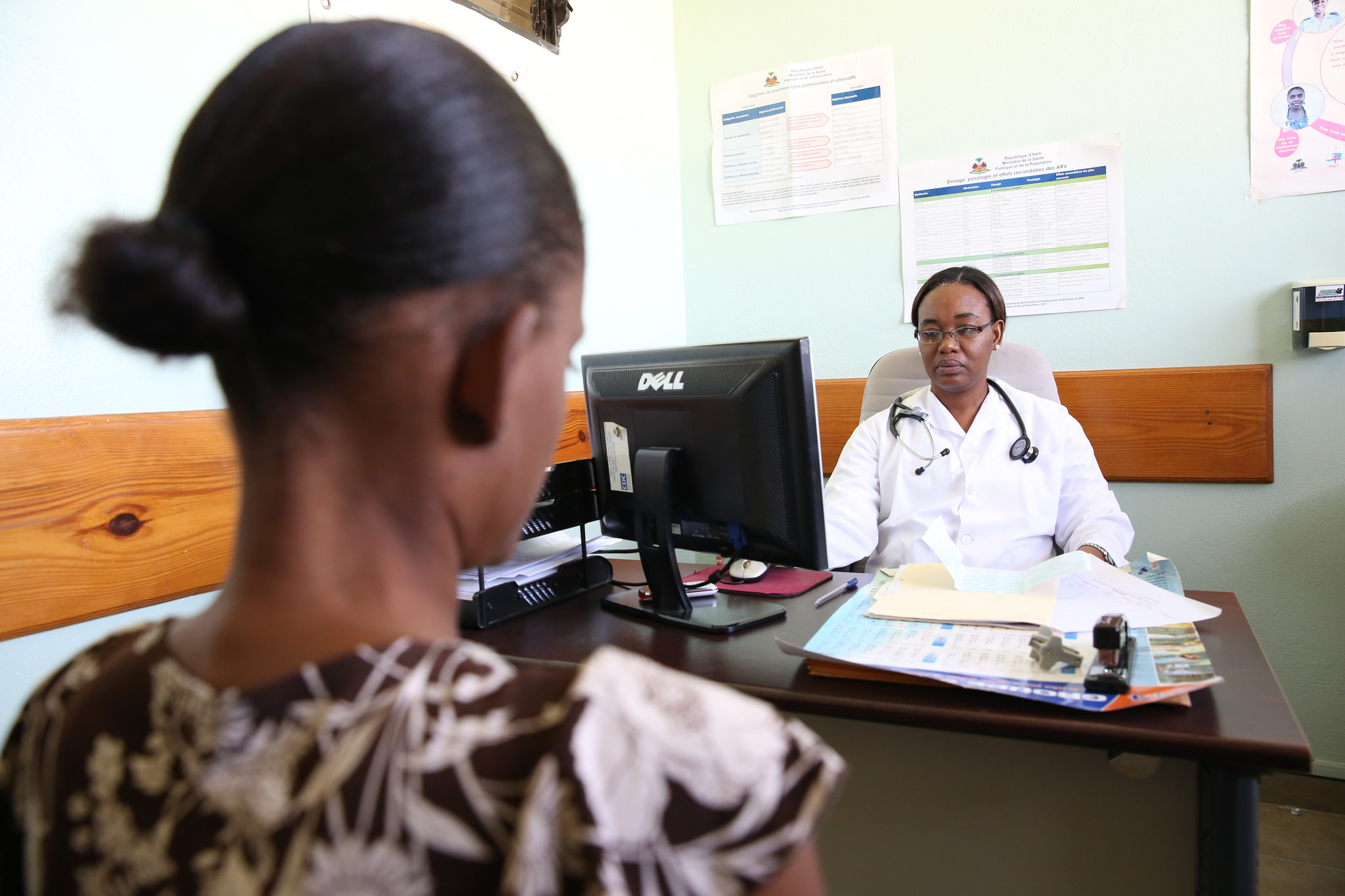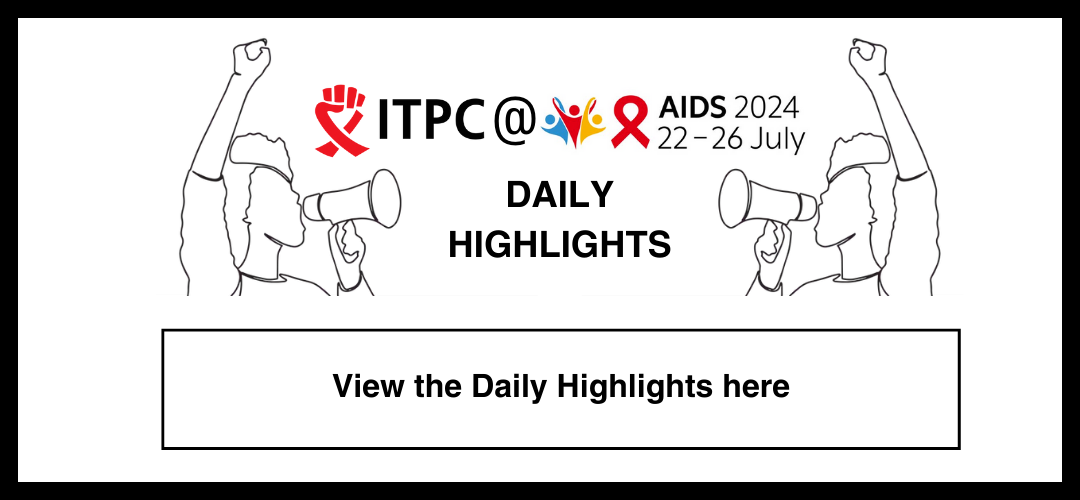Andy Seale summarizes a discussion that took place on ITPC’s listserv about when to initiate antiretroviral therapy. The discussion included consideration of WHO’s recommendation for Same Day Start. The summary below, and the full compiled comments from the discussion, will be considered by the WHO team developing the new guidelines, alongside results from the online survey.
Background
WHO is developing guidelines on the management of advanced HIV disease (including same day start for ART) and the public health response to HIV drug resistance. A values and preferences survey was circulated seeking inputs from people living with HIV exploring their opinions on:
• same day HIV treatment after testing positive;
• the best package of care for people who are either diagnosed with or develop advanced HIV disease (CD4 under 200);
• HIV drug resistance.
The dissemination of the survey prompted some strong reactions and discussion on the ITPC’s listserv. The discussion is briefly summarized below.
Who Contributed to the Discussion?
ITPC’s listserv includes HIV positive contributors and unites advocates, activists and researchers from a variety of backgrounds regardless of their HIV status. Between 15 and 20 March, 19 people contributed to the discussion, including 15 men and 4 women. While different geographical perspectives were shared, many inputs were made from people based in the global north.
Several contributors commented on the need for discussions like this (and the WHO survey) to deliberately seek to include the voices of newly diagnosed people, who were not represented in the ITPC discussion. Others noted the lack of comprehensive regional balance in the discussion and the lack of balance in male and female perspectives. Some contributors noted the importance of considering emerging research that offers “voice” to community perspectives.
What was the Common Ground?
There was no consensus in relation to the proposed Same Day Start recommendation among contributors. However, contributors appeared to express a level of consensus around a number of issues related to Same Day Start including:
- Recognition of unacceptable delays in moving from testing to the offer of treatment in several contexts;
- Strong support for accelerated ART offer and initiation;
- Ensuring that treatment is offered without coercion;
- Ensuring that peer support and treatment literacy is not side-lined;
- Recognition that context varies considerably around health systems capacities, locations, communities and individuals.
Supportive of Same Day Start
Several comments recognized the value of the Same Day Start recommendation:
- Recognition of increasing evidence that appropriate implementation of Same Day Start can improve HIV outcomes;
- Same Day Start offer as a human right;
- Same Day Start can help with adherence and enhance HIV prevention;
- Same Day Start can help reignite a sense of urgency to fix slow systems /cascades.
“…there is an increasing amount of literature and studies showing the benefits of same-day treatment.”
“The opportunities from a new focus on same-day ART is an ideal structure and focus for included both treatment literacy and peer support.”
“I think it’s great for WHO to support offering same-day treatment, and I think it should be offered and made available to anyone testing HIV-positive. This was one of the recommendations in my PhD thesis: The Bioethical and Human Rights surrounding the HIV Testing of Women in South Africa and Other Sub-Saharan Africa Countries.”
“We all want our PLWHIV get access ART on the same day but how it will be possible? …. We also want our PWIDs or PWUDs LWHIV should access to ART on the same day.”
“In countries who have lengthy process and many obstacles to get treatment, the projects like the same-day treatment are a dream, but we should dream and guidance on good practices should be shared.”
Concerns About Same Day Start
Several comments highlighted concerns about the Same Day Start recommendation including:
- PLHIV should not become the focus for “fixing” gaps between testing and treatment caused by systems/service failures;
- Same Day Start does not allow appropriate time or space for individuals to process the news of their HIV status;
- Same Day Start is prompted by health systems failures – the health systems should be the focus not the individuals using them;
- Well intentioned policies are not often implemented as intended and this recommendation could undermine a people-centered approach through a shift in the clinician-patient dynamic;
- Simplified guidance may deny opportunities to address GBV linked to female ART access and adherence;
- The evidence is not conclusive – new evidence of value in Same Day Start needs to be considered alongside all evidence including community voices;
- Time is required for peer support and treatment literacy.
“Same day start is lazy and meant to make things easier for health systems.”
“Patient-centered! Autonomy! Choice! No pressure!”
“If a doctor forces a person to start treatment without any preparation, the treatment adherence will be compromised in many cases…and to treatment literacy will lost its importance.”
“If some individuals feel ready to commit for life on day 1 of diagnosis, then sure, that should be their right. If the rest of us need information, time, and totally non-judgmental respect, care and support to overcome the PTSD that many of us experience, just as do others when told they have a potentially life-threatening disorder, then that surely should be our right also.”
Conclusions and next steps
Those contributing to the discussion were a small, non-representative, but well-informed group. While different perspectives were expressed, the majority of contributors were cautious of the Same Day Start recommendation.
This summary (and the full compiled comments from the discussion) will be considered by the WHO team developing the new guidelines, alongside results from the online survey. It will also be available as an additional background resource at the WHO Guideline meeting on package of care for Advanced HIV Disease and Accelerated ART initiation 22-24 March 2017 in Geneva.

